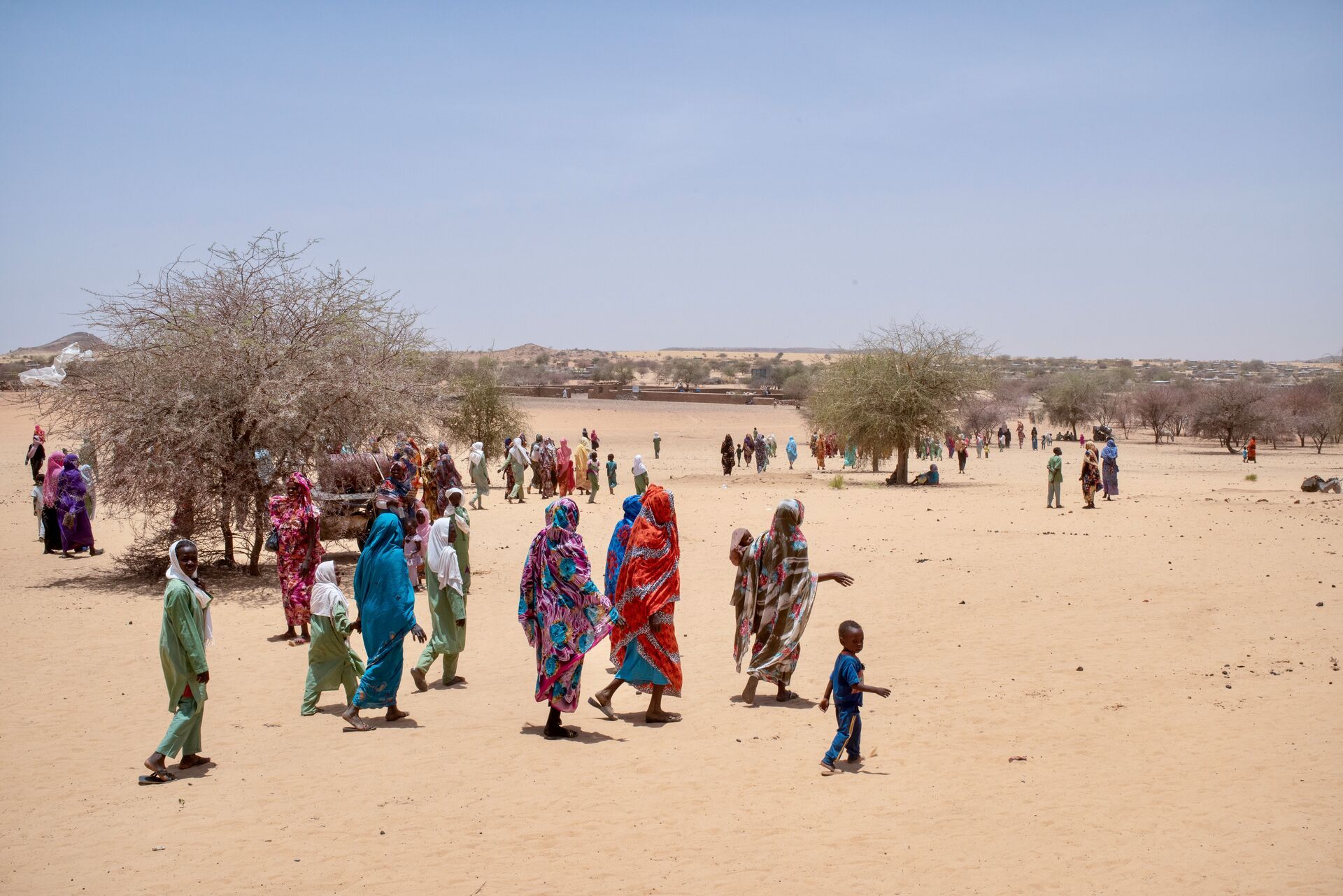
Rome: The global ceremony marking this year’s World Food Day 2023 took place here today against a backdrop of increasing world hunger and conflicts. In particular, participants stressed water’s critical role in underpinning our food security and how we can better manage and not take for granted this precious and finite resource.
With its 2023 theme, “Water is life, water is food. Leave no one behind,” this year the Day spotlighted the plight of 2.4 billion people in water-stressed countries and 600 million reliant on aquatic food systems who face pollution, ecosystem degradation, and climate change impacts.
With nearly three-quarters of all freshwater going to agriculture, changing the ways we produce our food, fibre, and other agricultural products has the biggest potential for impact.
“We need to shield our existing freshwater resources and aquatic food systems from pollution and impacts of climate change, and we have to ensure that people have more equal access to water. In other words, we have to treat our remaining water like our life–and food– depends on it,” states a Food and Agriculture Organization of the United Nations publication, Water is life, water is food. Leave no one behind, released today to mark the day.
Flood-related disasters have more than doubled since 2000, and the number and duration of droughts increased by almost a third. The publication states that the threats that too little or too much water pose to our food security, ecosystems and well-being “should be clear to all of us. So should the urgency to act to ensure a water-secure future for all”.
QU Dongyu the Director-General of the Food and Agriculture Organization of the United Nations, said this year’s World Food Day theme “makes the vital connection between water and food – without water there is no food and there is no food security without water security.”
However, rapid population growth, urbanization, industrialization, economic development and the climate crisis have all taken a toll on our water resources the world over, while increasing floods and droughts are further impacting agrifood systems – jeopardizing the livelihoods of millions of farmers, Qu noted.
Producing more with less
“But the good news is that we can produce more and better, with less. We can reduce water use, by using water wisely, and by recycling. And we can reduce agriculture’s water footprint by adopting a holistic and integrated approach to water management.” the FAO Director-General said.
World Food Day, is celebrated on October 16 every year to commemorate FAO’s founding on that day in 1945. and among the UN’s most celebrated days, mobilizes global action for agrifood system transformation.
Italy’s President Sergio Mattarella in his address noted that: “Scarcity of water is at the root of poverty, of conflict” and therefore the resource has to be managed “with determination and ingenuity as it can lead to peace and well-being.”
Irish President Michael D. Higgins, said: “We are at a perilous tipping point in terms of this precious resource.” He added: “It is important that we not encourage young people to repeat or extend our mistakes, you will have to do everything differently!”
Pope Francis, in a message read on his behalf said: “World Food Day is being celebrated at a time when misery and despair give no respite to many of our brothers and sisters,” and highlighted the “irreplaceable value” of water as a resource for all living beings on the planet.
In his video message, UN Secretary-General Antonio Guterres underlined water’s role as a necessity for nutritious and healthy food, adding: “The sustainable management of water for agriculture and food production is essential to end hunger, achieve the SDGs, and preserve water for future generations.”
Mariam Almheiri, United Arab Emirates Minister for Climate Change and Environment, said: “There are so many fundamental things we need to change about how water is managed and it’s so important that we do this because water has not been given the attention it deserves.”
Alvaro Lario, President of the International Fund for Agricultural Development said: “The nexus of water, food, energy, and climate change is fundamental to improving the resilience of our food systems.”
Cindy McCain, Executive Director of the World Food Programme, said: “As droughts degrade agricultural lands and water scarcity stokes instability, climate change is plunging more people into hunger and despair. We must work together, innovating and collaborating, to bring hope and resilience to vulnerable communities around the world.”
Also present at the ceremony were King Letsie III of Lesotho, Prince Hassan bin Talal of Jordan and Kassim Majaliwa, Prime Minister of the United Republic of Tanzania.
Today’s World Food Day celebration also featured the presentation of the second-ever FAO Achievement Award, which recognizes professional achievements, dedication and innovation in the field of agriculture and food security. This year’s award has been jointly conferred on the Sara Bangla Krishak Society, a national farmers’ organization from Bangladesh and Farmer Lifeline Technologies from Kenya, which has pioneered technologies to detect crop pests and diseases. In addition, the FAO Director-General congratulated the FAO country office in Nepal for its Emergency Center for Transboundary Animal Diseases.
FAO has recently highlighted the importance of water, through a series of initiatives and events collectively branded by the Organization as its Water Journey. One of these the Rome Water Dialogue, held earlier this month, was aimed at finding synergies and solutions to water’s critical role relating to soils, land, climate change, biodiversity and agriculture. It also showcased practical contributions to making better use of our freshwater resources, given that agriculture accounts for more than 70 per cent of the planet’s freshwater withdrawals.
Meanwhile, the 2023 World Food Forum (WFF) also kicked off today with a dynamic opening ceremony at the FAO headquarters here. The flagship event, a vibrant global platform that unites individuals from all walks of life and sectors, is dedicated to reshaping the future of agrifood systems.
With the overarching theme of the Forum “Agrifood systems transformation accelerates climate action”, the Forum will see over the week a diverse array of experts, dedicated changemakers, and visionary leaders from various sectors, and intergenerational. The WFF aims to address the pressing issues surrounding agrifood systems and forge new paths towards a more sustainable, resilient, inclusive, and hunger-free future.
“Transforming agrifood systems must be a central part of the global climate solution,’’ Qu highlighted.
– global bihari bureau





